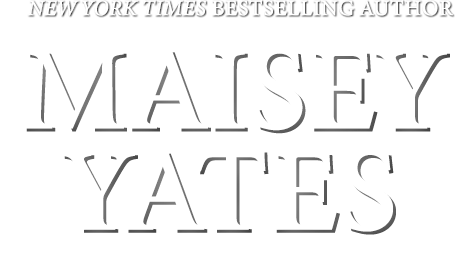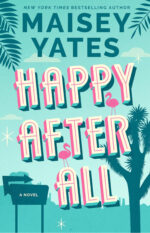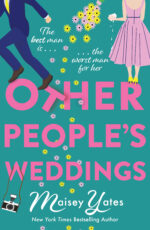Post Publication – All the Work that isn’t Writing
Before you sell a book you’re in a pretty sweet position in terms of doing actual writing. What do I mean by that? Well…all you have to do is write. That’s what I did. That’s how I learned. I wrote a manuscript, and I started another one. I know I’ve mentioned this here before, but I’ll say it again.
I submitted my first manuscript to Harlequin’s UK office shortly after the Instant Seduction contest and then I immediately started writing a second. And a third. All told, in between revisions for that first MS (which later was published and became His Virgin Acquisition) I wrote thirteen books. Because I just wrote. And wrote and wrote and learned pacing, and new ways to say things, new ways to explore emotion, execute an idea and flesh out characters.
Ultimately, I only submitted two of those thirteen manuscripts for publication. They were maybe my 7th and 8th? And they became my 2nd and 3rd published books: An Accidental Birthright and The Inherited Bride. But because so much rewriting was involved, I ended up leaving those other MSs in a box under the bed, so to speak, and chalking them up to a learning experience. Writing new MSs with my new skills was easier for me at that point than fixing the mistakes I’d made in the ones that were already written.
I say that mainly as a PSA for writing while waiting and on submission. Because that’s how you learn! And because once you’re published there are a lot of other fiddly things to do.
I’m not even talking about promotion. Promotion post publication is something most people are aware of. I want to talk about the other things.
First of all, wait times. You still have them. You’re going to turn a book in, and sometimes you’ll get it back really fast. Some editors and publishers are always fast. Most are not. My wait times with Harlequin have varied but the average turn-around on a MS of mine is three weeks. With Berkley it’s been longer. It’s easy to want to sit and wait to hear back. But that’s a waste of time, in my opinion. I’ve learned to do much the same as I’ve always done: Write while I wait. (see!? It was good practice!)
So you turn a MS in, you wait, you get revisions back, you do revision, you turn them in, you wait more, you hear your MS is all good. Done, right? NO. 😉
There are also art forms. Either a document describing what you want on your cover, with examples of other books and character descriptions, or an official form. You have to write a synopsis, or blurb suggestions. Add settings, seasons, time frames, relevant scenes from the book to draw cover ideas from. Every publisher wants something slightly different, but it’s typically a variant on this.
Done, right? NO.
At Harlequin the next step is to get AAs (author adjustments, I believe) where you read through a PDF of your MS and request final changes, catch remaining typos, whine about how the copy editor changed one of your more succinct words for the male member to ‘manhood’ etc.
With my other publisher it’s a different, multiple step process. I’ve had my novella Unbuttoned back twice to approve changes/corrections, and next I’ll have galleys, where you can only change a word here and there because the MS has been typeset. These are time consuming steps. With a short book, it can eat your whole day. With a long one, half your work week.
And the more you write, the more of this kind of stuff you have to do. I actually like most of the steps in the process, but sometimes it can really slam into you. I just had a week where I got AAs from Harlequin, edits from Berkley on Unexpected and then another set of AAs at the end of the week! You don’t get much in the way of new words on the page during a week like that.
Another thing linked to wait times is that the more people involved in your career, the more people you have to talk to about things. My agent helps me strategize my career in general, and sometimes I have an idea, but I need to wait to speak to her, or, I mean I don’t, but sometimes I end up with things written that didn’t need to be written if I do that. Sometimes I have to bounce a new idea off of my editor.
There are times when you’re negotiating contracts and sitting on your hands, not telling the internet and so consumed with everything that it’s hard to write. Because it feels like there’s a lot going on, even if half of it is nothing you can control at all.
My past two weeks were spent brainstorming and going back and forth with my editor about a project that isn’t going to happen now, not as I conceived it. But I spent two weeks working on something with what feels like nothing to show for it. That doesn’t mean I have nothing to show for it, because I firmly feel that any creative work and thought is valuable to you as a creator because it’s experience, and practice at your craft. But I have zero words to show for my effort and since I’m a word count oriented person, it’s hard for me to feel accomplished after weeks like that.
Or when I have to pause to do any of these things, really! But I’m getting used to them being part of the process, and the more I accept them as part of it, the less I resent them when I have a week where other things that are related to the business keep me from making progress on a new MS. It’s been a matter of me changing my perspective, and accepting the fact that being a published writer means adding a lot of things that aren’t strictly ‘writing’.
So these are some of the things that come into play post publication, beyond blog tours and the like.
The good thing about all this? When I have a week where all I have to do is write words? It feels like bliss. And getting to feel like the majority of your job is bliss is pretty darn good. 😉
(If you have any questions, or, authors, anything to add as I’m sure I’ve missed something, feel free to do so in the comments!)
Comments
11 Responses | TrackBack URL | Comments Feed








In those first submitted manuscripts – did you have all grammar issues under control (such as staying in past tense throughout)? Or did the editor kindly remind you your tense was off?
Hi Marcie, tense was never something I struggled with. My issues tend to be more story related (to this day!) character, pace, etc. As far as the grammar issues I do have (I’m a comma abuser) those tend to get fixed by the copy editor.
Have you had some say in all of your covers?
Awesome post 🙂
Another question popped out at me (thanks for answering my first one):
You can’t make changes to a PDF (that I’m aware of) so how do you let the editor know about final changes? In a separate doc that has page number, line number, and word number listed?
Maisey – great post and thanks for the insight into being a published writer 🙂 I hope to be going to the RWA conference in Freo so I will come over and say hi!
**MarcieR – great question, I also want to know the answer 🙂
Marcie, for Harlequin, the PDF is numbered and I make corrections on a word doc. Page 7, ln1 change ‘their’ to ‘they’re’ etc. 😉 For Berkley, so far I’ve worked in a word doc and made changes that were left highlighted. The CE and the editors involved in the project leave notes and I’m able to leave responses. I have to say, I prefer the that way.
Joanne, please come say hi! It will be lovely to meet you!
Brooke, I always have input but it doesn’t always make it to the cover! My last few have been exactly what I asked for, but there were a few in there that seemed random!
Late posting. Awesome blog, Maisey! It sounds like a frantic time – but I guess you wouldn’t change a thing though! Caroline x
Love you Maisey. Just LOVE you!! Thank you for all of that!!
Thanks Caroline!
Claudia, thank you! I’m happy to share. x
Thank you for sharing behind the scene. You answered many questions that I had. Wonderful Post!